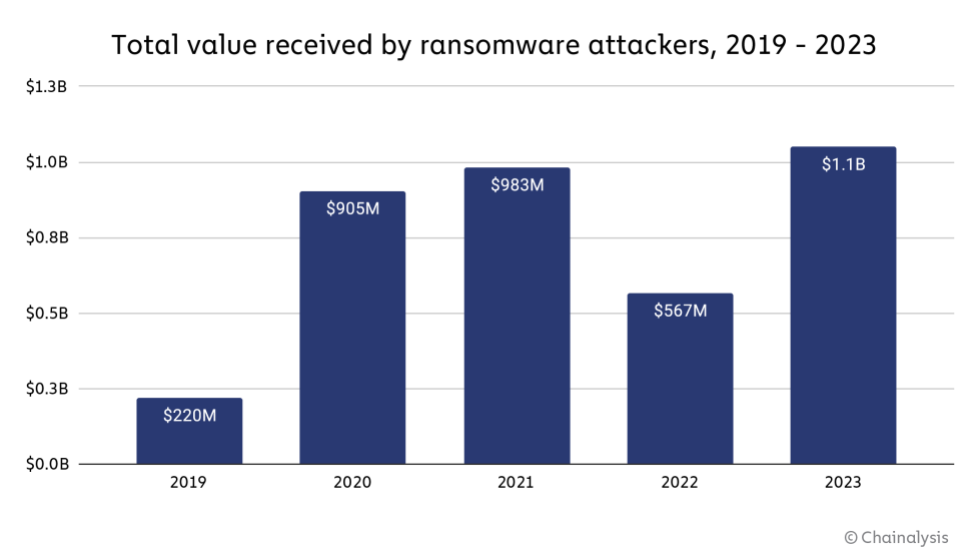ARTICLE AD BOX
Despite efforts to combat cybercrimes and theft in the crypto industry, a recent study by Chainalysis has revealed a significant resurgence of ransomware in 2023.
Payments exceeding $1 billion were recorded, marking a substantial increase in the scope and complexity of attacks. This represents a major reversal from the decline observed in 2022, indicating that ransomware remains an escalating problem.
Ransomware Landscape Evolving?
The study highlights that the ransomware landscape is continuously evolving, with increased threat actors and the complexity of attacks.
According to the blockchain analysis firm, one contributing factor to the surge in ransomware attacks is the growth of Ransomware-as-a-Service (RaaS), which has lowered the barrier to launching such attacks. This has reportedly made it easier for malicious actors to execute ransomware campaigns.

Furthermore, 2023 witnessed a notable number of “high-impact” ransomware incidents that exploited several vulnerabilities. The activities of Cl0p, a prominent strain during this period, underscored the major impact of attacks.
Chainalysis shows that Cl0p’s MOVEit – a ransomware variant – campaign alone amassed over $100 million in ransom crypto payments, making it the most prominent strain in the entire ecosystem.
The study also reveals a strategic preference among ransomware crypto operators for targeting high-value entities. This has resulted in a shift towards larger ransom demands, with an increasing share of ransomware payment volume comprising payments of $1 million or more.
Crypto Industry Faces Escalating Threat
The study acknowledges notable successes in the fight against ransomware due to global cooperation among law enforcement agencies, impacted organizations, cybersecurity entities, and blockchain intelligence. The FBI estimates that infiltrating the “Hive strain” alone prevented approximately $130 million in ransom payments.
However, the overall trend line indicates that ransomware remains a significant challenge. The firm stated that the strange drop in 2022, influenced by geopolitical factors, improved victim preparedness, and law enforcement efforts, was not sustained.
The continuous evolution of ransomware tactics, the rise of RaaS, and the exploitation of zero-day vulnerabilities have made tracking and combating ransomware “increasingly difficult.”
Overall, the resurgence of ransomware in 2023, surpassing $1 billion in payments, highlights the escalating threat to the crypto industry posed by these malicious attacks.
The study emphasizes the need for ongoing collaboration between stakeholders, including law enforcement agencies, impacted organizations, cybersecurity entities, and blockchain intelligence, to combat crypto-ransomware effectively.
Chainalysis believes that disrupting financial networks and enhancing cybersecurity measures are crucial elements in mitigating the impact of ransomware and safeguarding against future attacks.
Featured image from Shutterstock, chart from TradingView.com
.png)
 1 year ago
13
1 year ago
13








 English (US)
English (US)